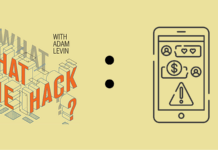October is National Cybersecurity Month, and this year’s theme is “Secure our World.” While it may be comforting to think most cyber threats come by way of international crime syndicates, the bigger threat is the everyday tech in our lives.
The stakes are higher than ever. Cases of cybercrime syndicates actively targeting teenage boys in romance scams have exploded in the last few years, sometimes with tragic results as you can hear on this episode of What the Hack.
Ditto pig butchering scams, which are very common on social media sites, often using slave labor yoked to social engineering to drain victims of their life savings.
On another front, voice-based deepfakes are being used to access financial accounts.
This Cybersecurity Month is a good time to stop thinking about large-scale cyberattacks and small-time scams as fundamentally different:
- They both affect millions of people: Large scale cyberattacks have the potential to bring critical infrastructure and supply chains to a screeching halt, but scams (as currently reported to the FTC) impact those targeted with often ruinous financial consequences. More importantly, the former is often made possible by the latter.
- Cyberattacks and scams are symbiotic: The compromised data of a major business can be used to commit specific crimes committed against individuals, and vice-versa. To cybercriminal syndicates, virtually all data is valuable in some way, which is why it’s such a valuable commodity online. Hacked people and entities get people and entities hacked.
- Cybersecurity best practices are the same: Education and awareness of the threats and baseline security measures provide protections to corporations and individuals equally.
While large corporations and government agencies are able to weather the effects of a cyberattack, we need to ask whether or not our friends, family and loved ones are able to do the same.










